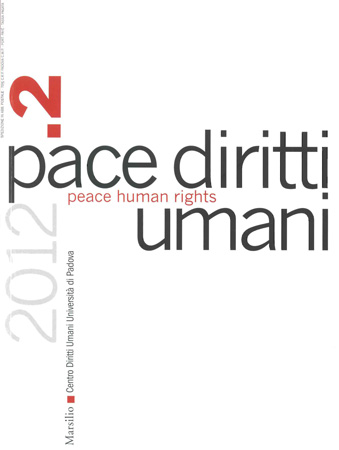Raccolte

Note a margine della prima sentenza della Corte penale internazionale (Procuratore c. Thomas Lubanga Dyilo)
- Contenuto in
- Pace diritti umani - Peace Human Rights, 2/2012
- Tipologia pubblicazione
- Articolo / Saggio
- Pagine
- 125-138
- Lingua
- IT
Some Thoughts on the First Judgment of the International Criminal Court
(Prosecutor v. Thomas Lubanga Dyilo)
First judgment of the International Criminal Court, the Lubanga trial has been a test case for the ICC and its institutional and judicial architecture. Throughout the almost 9 years long proceedings, the judges of the Court were not only often confronted with interpreting for the first time the provisions of the Rome Statute but they had also to tackle complex legal issues ranging from both substantive (nature of armed conflict; elements of the crime) and procedural criminal law (participation of victims; investigations). Some of the decisions delivered during the Lubanga proceedings, such as the one concerning the judicial interpretation of Article 17 of the Statute, became milestones for the subsequent judicial orientation of the Court and rest still today as standards to be followed. However, besides the huge amount of litigation produced and the contribution it gave to the articulation and testing of some specific issues of law, the Lubanga trial is likely to be remembered because it sums up the most critical aspects related to the early practice of the ICC in connection to the principle of complementarity, considered in both its legal (admissibility) and policy (prosecutorial policy of case selection and the practice of self-referrals) dimensions.

